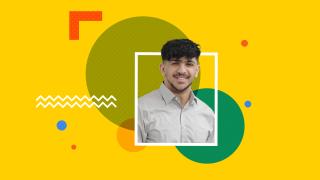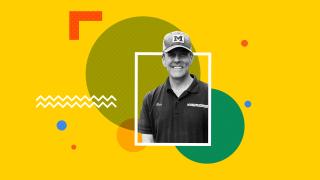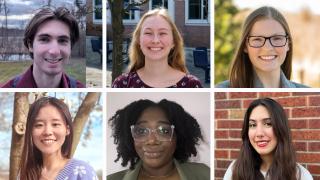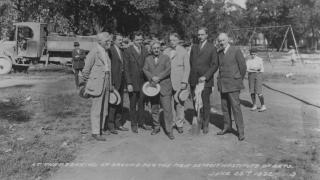
Instead, she relied on her LiveScribe SmartPen, a device she learned about in college.
“It records the lecture and I can go back to a point in time and easily pick up anything I might have missed,” said Kashat, a senior psychology major. “I want to keep up with everyone and not lag behind. I value independence and feel whatever is available to help me be self sufficient, I’ll take it.”
Because of technology, testing accommodations and Disability Services’ supportive environment, Kashat said her grades have greatly improved.
“When I was younger, I would sometimes be too embarrassed to ask for help. But I’ve seen what happens when you do,” she said. “You focus less on your struggle and what you can’t do, and focus more on why you are here and what you want to do with your future.”
Successes like Kashat’s are why awareness and support is so essential, said Disability Services Coordinator Judy Walker. And that’s why she wants campus to celebrate October’s National Disability Awareness Month.
“It’s a chance to reinforce that this is something that is really needed. Disability Services has grown substantially on campus during the past five or six years, and it continues to grow because of awareness and the removal of stigma,” Walker said.
She said Disability Services has connected students with limited physical mobility with assistants to run chemistry lab experiments, visually impaired students with scribes to take tests and hearing impaired students with interpreters to engage in classroom discussions.
“The service is meant to make the playing field level. We have wonderful faculty and staff who understand these needs and that benefits us all, especially our students,” she said. “Our students are smart and capable—they have the knowledge. The mind is their own; they just need a little added assistance.”
Walker said if the support services weren’t in place, natural talents may go undiscovered and goals unfulfilled. And it’s the purpose of an educational institution to help students find and reach those goals.
“It’s important to see beyond physical limitation,” Walker said. “No one knows when they are going to need help. Life happens. But if you find yourself in this type of position, it’s good to know that people are aware that you are still you—a you with goals and dreams. And there is help to achieve them.”
Disability Services is hosting several campus-wide events in recognition of Disability Awareness Month. Events are complimentary and open to all:
- 20, noon to 2 p.m., Campus Tour for Visually Impaired Students. Meet at Disability Services office.
- 24, 11 a.m. to 1 p.m., Disable the Label. McKinley Café.
- 26, 11:30 a.m. to 1 p.m., Working with Disabilities: The Art of Disclosure panel discussion. Panelists include representatives Blue Cross/Blue Shield and U.S. Customs and Border Protection. Lunch included. 1225 University Center. Sponsored by Disability Services & Career Services.
For more information, contact Disability Services at 313-583-5430.
Conscientious Communication
Disability Services Director Judy Walker knows most mean well, but there are times when we aren’t sure how to communicate.
So she’d like to share a few of Disability Services’ “rules of etiquette”:
- When talking with a person with a disability, speak directly to that person rather than through a companion or sign language interpreter.
- When introduced to a person with a disability, it is appropriate to offer to shake hands. People with limited hand use or who wear an artificial limb can usually shake hands. Also, shaking hands with the left hand is an acceptable greeting.
- When meeting a person with a visual impairment, always identify yourself and others who may be with you. When conversing in a group, remember to identify the person to whom you are speaking.
- If you offer assistance, wait until the offer is accepted. Then listen to—or ask for—instructions.
- Treat adults as adults. Address people who have disabilities by their first names only when extending the same familiarity to all others.
To learn more about rules of etiquette when communicating with persons with disabilities, contact Disability Services at 313-583-5430.



